Kenya used to be governed by the Queen of Kenya, Elizabeth II before the country became a republic within the commonwealth in 1964. The executive president replaced the prime minister, the monarch, and the governor-general. The president of the Republic of Kenya is the same as the head of state and also the head of government of Kenya. All the presidents of Kenya since after independence are indigenes
The president of Kenya leads the executive arm of the government and is also the commander in chief of the Kenya Defence Forces.
The incumbent president, Uhuru Kenyatta, is the son of the first president, Jomo Kenyatta. Here is all you need to know about all the presidents of Kenya since independence in 1963.
All the Presidents of Kenya
1. Jomo Kenyatta (1964-1978)
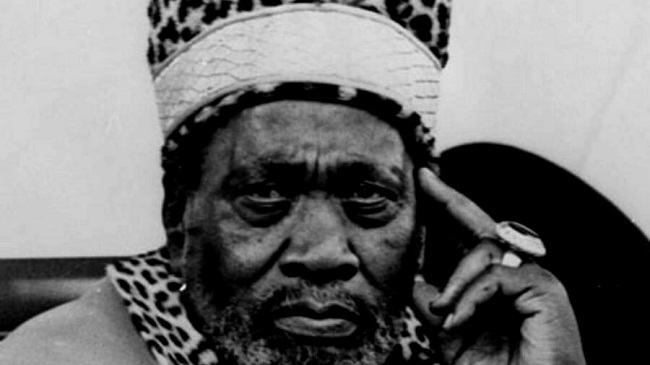
- Full Name: Kamau was Muigai “Jomo Kenyatta”
- Date of birth: 1897
- Died: 22 August 1978
- Age: 80-81 (age at death)
- Nationality: Kenyan
- In-office: 12 December 1964-22 August 1978
- Vice President: Jaramogi Oginga, Odinga Joseph Murumbi and Daniel Arap Moi
- Preceded by: Elizabeth II (Queen of Kenya)
- Succeeded by: Daniel Arap Moi
- Political Party: KANU
- Spouse (s): Grace Wahu, Edna Clarke, Grace Wanjiku, and Ngina Kenyatta
- Education: University of London, London School of Economics
- Remembered for: Facing Mount Kenya
Jomo Kenyatta was the first indigenous president of Kenya. He won the 1963 general election and oversaw the transition of the Kenya Colony into an independent republic. He was one of the presidents of Kenya that made history. He was known worldwide for his ideology.
He was an anti-colonial activist and also the leader of the Kenyan African National Union (KANU) party from 1961 until his death.
During his tenure, the first vice president was a Luo chieftain, Jaramogi Ajuma Oginga Odinga. Joseph Zuzarte Murumbi was later made vice president between May and December 1966.
Jomo Kenyatta was said to have lived a flamboyant lifestyle. He liked to dress well and had a variety of expensive cars.
- Achievements and Failures
Kenyatta was regarded as the father of the nation not only to the Kikuyus but all the Kenyans. He was said to be the most admired post-independence African leader worldwide.
He was referred to as a controversial figure. Before the independence, he was often regarded as an agitator and malcontent. His government gained wide respect for his anti-colonialist ideology. He was even given the honorary title of Mzee.
His opinions were valued by both conservative African leaders and even Western leaders. Kenyatta was described as one of the legendary pioneers of modern African nationalism.
One of the important things he did was dismantling the colonial-era system of racial segregation in schools, public facilities, and social clubs peacefully.
Kenyatta was said to have achieved more than what the colonial state had accomplished in six decades.
His reign was heavily criticized saying it was dictatorial, authoritarian, neo-colonial, favored Kikuyu over other ethnic groups, and facilitated the growth of widespread corruption.
2. Daniel arap Moi (1978-2002)
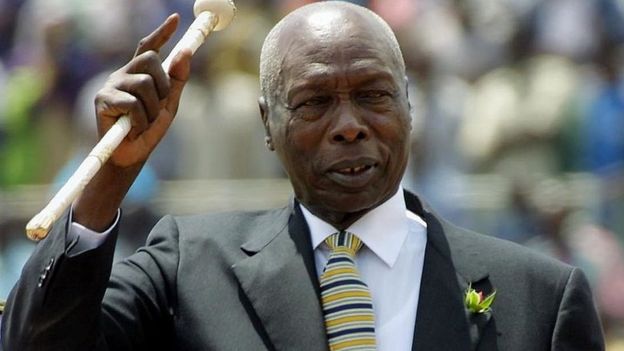
- Full Name: Daniel Toroitich arap Moi
- Date of birth: September 2, 1924
- Died: February 4, 2020
- Age: 101
- Nationality: Kenyan
- In-office: 22 August 1978-30 December 2002
- Vice President: Mwai Kibaki, Josephat Karanja, George Saitoti, and Musalia Mudavadi
- Preceded by: Jomo Kenyatta
- Succeeded by: Mwai Kibaki
- Political Party: KANU
- Spouse (s): Lena Bomett (m. 1950; Sep. 1974)
- Education: Kapsabet High School
Daniel arap Moi was the longest-serving president among all the presidents of Kenya. He became the second president in 1978. After Jomo Kenyatta died in 1978, Moi became the acting president.
- Achievements and failures
He was then the founder and patron of some major schools in Kenya. Moi was barred from running in the 2002 presidential elections.
The former president owned the Kiptagich Tea Factory that was established in 1979. The company has been in several controversies. The factory was under threat of being shut down in 2009 during the Mau Forest evictions by the government.
He died on February 4, 2020, at the age of 95 at the Nairobi Hospital.
Read Also: Alkebulan Is The Oldest Name Of Africa- 10 Other Things You Don’t Know
3. Mwai Kibaki (2002-2013)
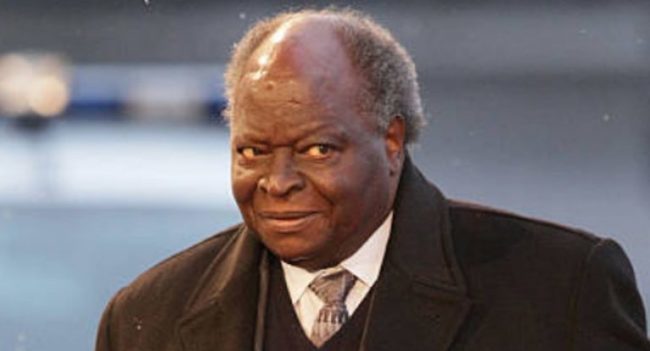
- Full Name: Emilio Staney Mwai Kibaki
- Date of birth: November 15, 1931
- Age:94
- Nationality: Kenyan
- In-office: 30 December 2002-9 August 2013
- Vice President: Michael Wamalwa, Moody Awori, Kalonzo Musyoka
- Preceded by: Daniel arap Moi
- Succeeded by: Uhuru Kenyatta
- Spouse (s): Lucy Kibaki
- Education: Makerere University London School of Economics
Mwai Kibaki is the third president of Kenya. He served from December 2002 until April 2013. He was also the fourth Vice-president of Kenya for ten years under President Daniel arap Moi.
His leadership style was that of low-key publicity. Unlike his predecessors, he never had his portrait on every unit of Kenya’s currency. No streets, places, and institutions were named after him.
- Achievements and failures
Kibaki’s regime made it possible for the passage of Kenya’s transformative 2010 constitution. The new constitution started wide-ranging institutional and legislative reforms. Also, he did well by repairing the damage done to the country during the reign of Moi.
Also, his tenure was regarded as a time when corruption was at its peak. Kibaki was not personally accused of corruption but he failed to tame it.
4. Uhuru Kenyatta (2013-till date)
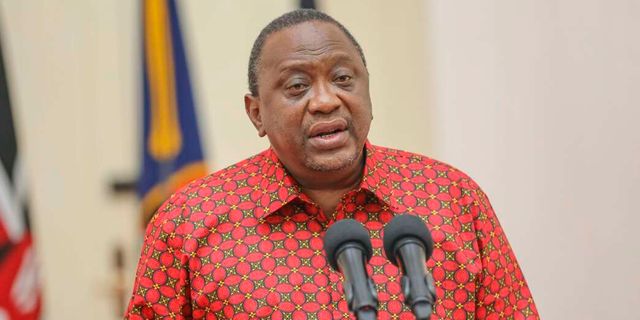
- Full Name: Uhuru Muigai Kenyatta
- Date of birth: October 26, 1961
- Age: 64
- Nationality: Kenyan
- In-office: April 9, 2013- till date
- Vice President: William Ruto
- Preceded by: Mwai Kibaki
- Political Party: Jubliee Alliance
- Spouse (s): Margaret Gakuo (m.1991)
- Education: Amherst College
Uhuru Kenyatta is the son of Jomo Kenyatta and the fourth president of Kenya since 2013. He had previously served as deputy prime minister of Kenya (13 April 2008-9 April 2013|) and minister of finance (23 January 2009-26 January 2012).
He was elected the fourth president of Kenya under the National Alliance (TNA).
- Achievements and Failures
Uhuru Kenyatta has led and negotiated peace agreements in South Sudan and also in the Democratic Republic of Congo.
Kenyatta was seen as a minister without any scandal. Ironically, he became a controversial fellow after he presented a supplemental budget that was inadvertently approved by the parliament.
Also, before he became president, he was a suspect of crimes against humanity by the international criminal court (ICC).
Presently, his major challenges are the high cost of living, rising public debt, a high public wage bill, and allegations of corruption among his cabinet.
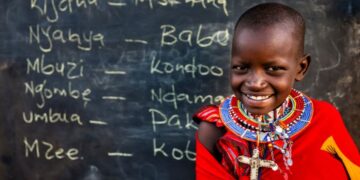

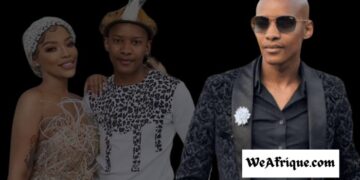







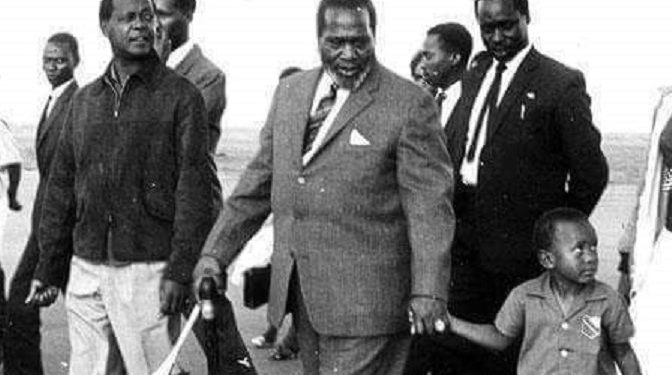










Discussion about this post